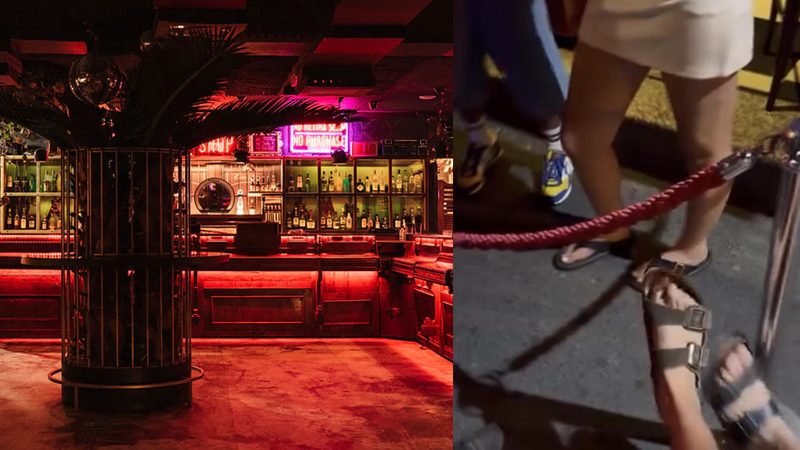
Fury Erupts as 100,000 Asylum Seekers May Get Homes While Brits Struggle Through Housing Crisis
Share0More than 100,000 asylum seekers could soon be placed into taxpayer-funded homes, including houses, flats, and bedsits, and it’s left plenty of people across the country asking what on earth is going on.
With the Home Office pushing to close down the ballooning number of migrant hotels, it has now emerged that contracts with companies like Serco, Mears, and Clearspring Ready Homes could see tens of thousands more asylum seekers placed into private accommodation across the UK.
At the moment, over 32,000 are already in hotels and almost 67,000 are in what’s known as dispersal accommodation, scattered around towns and cities. But during an inquiry, officials admitted that the figure could easily shoot past 100,000 under the current contracts. They also confirmed they’re paying providers more to help shift migrants out of hotels and into rented properties — even though it hasn’t had the expected impact in boosting capacity, reported the Express.
Critics haven’t minced their words. Reform UK’s Lee Anderson slammed the entire approach, warning the public is being taken for fools while private companies cash in. He didn’t hold back, saying: “They should not have to worry about groups of unidentified, fighting-age males roaming the streets in their communities. Only Reform will put a stop to this lunacy.”
The frustration wasn’t limited to Reform. Conservative MP Chris Philp called out what he sees as a complete failure to get a grip, pointing to government figures that predict £2.5 billion a year will still be going towards asylum housing even in 2029. “They are taking British taxpayers for a ride,” he said, “when hard-working young British people have nowhere to live.”
The public cost of the crisis is eye-watering. The Home Office admitted that reliance on temporary hotel accommodation — originally meant to be a stop-gap — has dragged on for years. And while officials say monthly meetings with councils are in place to manage the rollout of housing, there’s growing concern about how this is being handled behind the scenes.
Robert Bates from the Centre for Migration Control didn’t sugar-coat it either. He warned that the government is clearly preparing to grab thousands more homes off the rental market to cope with rising numbers, and all while keeping the real scale of the plan out of public view.
Labour’s Chancellor Rachel Reeves says her party wants every migrant hotel closed by July 2029. An extra £200 million is being promised to tackle the backlog and remove those with no right to remain. But Treasury documents show taxpayers will still be footing massive bills for years, with £3.6 billion expected to be spent in both 2025 and 2026.
Home Office Minister Dame Angela Eagle said the plan is to use more abandoned buildings like old colleges or tower blocks rather than snatching up private rentals. Even so, officials confirmed that over 80% of council areas now have asylum accommodation — up from 70% just last year.
Joanna Rowland from the Home Office admitted some local authorities are already feeling the strain. She told MPs they’re trying to manage the transition away from hotels carefully, so some areas don’t get overloaded while others remain untouched.
According to a spokesperson, the current situation is one the government “inherited” and they’ve already boosted decision-making and removed thousands of failed asylum seekers. But with more communities bracing for change and spending still sky-high, many are wondering when the system will finally be sorted. More than 100,000 asylum seekers could soon be placed into taxpayer-funded homes, including houses, flats, and bedsits, and it’s left plenty of people across the country asking what on earth is going on.
With the Home Office pushing to close down the ballooning number of migrant hotels, it has now emerged that contracts with companies like Serco, MeaRS, and Clearspring Ready Homes could see tens of thousands more asylum seekers placed into private accommodation across the UK.
At the moment, over 32,000 are already in hotels and almost 67,000 are in what’s known as dispersal accommodation, scattered around towns and cities. But during an inquiry, officials admitted that the figure could easily shoot past 100,000 under the current contracts. They also confirmed they’re paying providers more to help shift migrants out of hotels and into rented properties — even though it hasn’t had the expected impact in boosting capacity.
Critics haven’t minced their words. Reform UK’s Lee Anderson slammed the entire approach, warning the public is being taken for fools while private companies cash in. He didn’t hold back, saying: “They should not have to worry about groups of unidentified, fighting-age males roaming the streets in their communities. Only Reform will put a stop to this lunacy.”
The frustration wasn’t limited to Reform. Conservative MP Chris Philp called out what he sees as a complete failure to get a grip, pointing to government figures that predict £2.5 billion a year will still be going towards asylum housing even in 2029. “They are taking British taxpayers for a ride,” he said, “when hard-working young British people have nowhere to live.”
The public cost of the crisis is eye-watering. The Home Office admitted that reliance on temporary hotel accommodation — originally meant to be a stop-gap — has dragged on for years. And while officials say monthly meetings with councils are in place to manage the rollout of housing, there’s growing concern about how this is being handled behind the scenes.
Robert Bates from the Centre for Migration Control didn’t sugar-coat it either. He warned that the government is clearly preparing to grab thousands more homes off the rental market to cope with rising numbers, and all while keeping the real scale of the plan out of public view.
Labour’s Chancellor Rachel Reeves says her party wants every migrant hotel closed by July 2029. An extra £200 million is being promised to tackle the backlog and remove those with no right to remain. But Treasury documents show taxpayers will still be footing massive bills for years, with £3.6 billion expected to be spent in both 2025 and 2026.
Home Office Minister Dame Angela Eagle said the plan is to use more abandoned buildings like old colleges or tower blocks rather than snatching up private rentals. Even so, officials confirmed that over 80% of council areas now have asylum accommodation — up from 70% just last year.
Joanna Rowland from the Home Office admitted some local authorities are already feeling the strain. She told MPs they’re trying to manage the transition away from hotels carefully, so some areas don’t get overloaded while others remain untouched.
According to a spokesperson, the current situation is one the government “inherited” and they’ve already boosted decision-making and removed thousands of failed asylum seekers. But with more communities bracing for change and spending still sky-high, many are wondering when the system will finally be sorted.
Don’t Miss These:
- Ghetts sentenced to 12 years for London hit-and-run death of student
- Two Men Claim Melbourne Club Banned Their Shoes but Allowed Women With Similar Footwear
- Tyler Perry calls $77m lawsuit a “money grab” while denying assault allegations
- Justin Timberlake files lawsuit to stop release of DWI arrest bodycam footage
- 14-Year-Old Girl Missing from Minnesota Home, Police Urgently Seek Public’s Help



